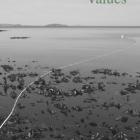Balali, Mohammad Reza, Jozef Keulartz, and Michiel Korthals. “Reflexive Water Management in Arid Regions: The Case of Iran.” Environmental Values 18, no. 1 (2009): 91–112. doi: 10.3197/096327109X404807. Republished by the Environment & Society Portal, Multimedia Library. http://www.environmentandsociety.org/node/7492.
To illuminate the problems and perspectives of water management in Iran and comparable (semi-) arid Middle East and North Africa (MENA) countries, three paradigms can be distinguished: the traditional, the industrial and the reflexive paradigm. Each paradigm is characterised by its key technical system, its main social institution and its ethico-religious framework. Iran seems to be in a state of transition from the ‘hydraulic mission’ of industrial modernity to a more reflexive approach to water management. This article sketches the contours of the emerging paradigm: a complementary system of traditional and modern methods of water provision, a participatory water resources management and a ‘post-mechanistic’ ethico-religious framework.
— Text from The White Horse Press website
All rights reserved. © 2009 The White Horse Press


